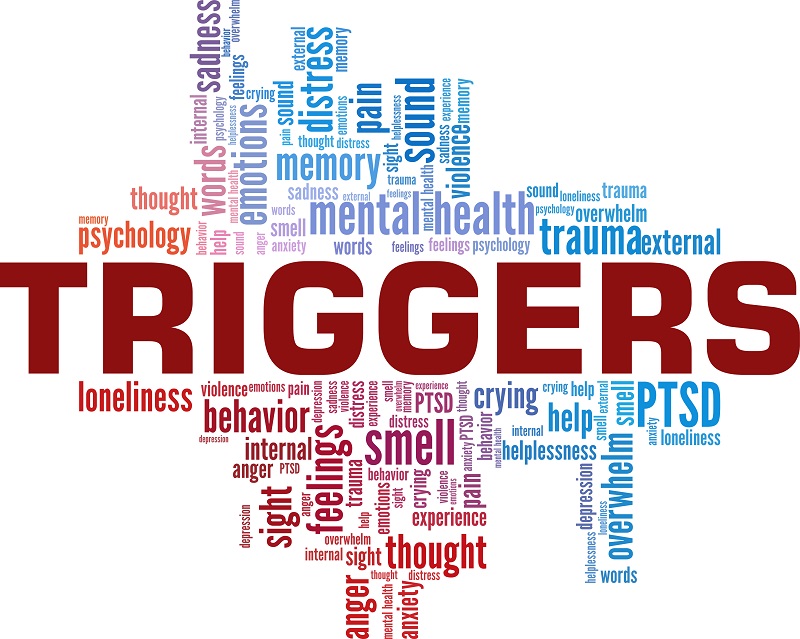Individual Counseling Can Help Understand Emotional Triggers
Individual counseling can help you to identify and cope with your emotional triggers. An emotional trigger is any topic or event that causes a strong reaction related to past trauma. The correlation may be obvious, but more often it takes a little work to figure out where your triggers come from. Once you identify your triggers and why they affect you in that way, you can use healthy coping strategies to minimize their impact on your daily life.

Where Do Triggers Come From?
When we talk about “triggers”, we are typically thinking of them in terms of PTSD. We all have emotional triggers to some extent, however. We all had painful experiences as children that we were unable to acknowledge or process at the time. So then as adults, when we experience things that our minds associate with those difficult feelings from childhood, they come rushing back even if we don’t consciously make the connection.
Physical Memory
An emotional trigger can make you feel as though a traumatic event is happening all over again. They most commonly manifest as physical reactions like a racing heartbeat, shallow breathing, or stomach tightening. This is a fight or flight response to feeling threatened and may cause us to behave in ways we regret later. The good news is that paying attention to these sensations can give you the power to change how you respond.
Types of Triggers
Triggers are different for everyone and they can be either internal or external. Here we give a few examples of each.
Internal Triggers
An internal trigger can be a memory, an emotion, or a physical sensation coming from within yourself. Some common internal triggers are:
- Feeling rejected, abandoned, overwhelmed, or out of control
- Anxiety
- Sadness
- Loneliness
- Anger
- Pain
- Muscle Tension
External Triggers
- External triggers come from your environment, like a specific situation, person, or place. Common external triggers include:
- A certain time of day
- A specific sound, smell, or sensation
- A person connected to the trauma
- A movie, television show, or news article that reminds you of the trauma
- Arguing with a friend, spouse, or partner or ending a relationship
- Significant dates such as holidays or anniversaries
Coping With Triggers
In some circumstances, it makes sense to just avoid a triggering situation. Most of the time, however, avoidance leads to unhealthy coping mechanisms. Avoidance is used currently while developing healthy strategies. It is almost always better to identify the origin of the trigger and work on healing the underlying trauma. That healing requires emotional processing that is best accomplished in individual counseling.
A few healthy coping strategies that you can try right away are:
- Deep breathing
- Mindfulness meditation
- Exercise
- Seeking social support
- Journaling
- Simple logic or concentration video games
- Identify five things you can see, four that you can touch, three you can hear, two you can smell, and one you can taste
Your goal when you are triggered should be to notice the trigger, detach from it, and center your focus on a healthy coping strategy.
Individual Counseling Helps You Heal
The very common avoidance-oriented coping strategies are an attempt to ignore a situation or its impact. In counseling, we seek to replace these strategies with approach-oriented coping strategies, which focus on managing emotions or changing the situation to make it less stressful. Counseling helps us to identify our automatic thinking and learn new skills for finding solutions to our problems rather than avoiding them.
For more information about individual counseling in Johnson County, KS, call Take Charge, Inc. at (913) 239-8255. To schedule an appointment, click here.
E-News Signup
Increase your emotional intelligence by signing up for the brief monthly eNews with Terri’s emotional intelligence tips and info.
FORM WILL GO HERE...
